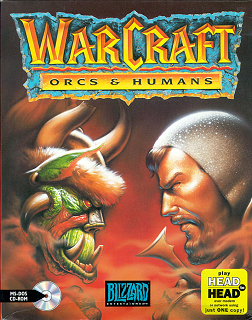| Stormgate | |
|---|---|
 | |
| Developer(s) | Frost Giant Studios |
| Engine | Unreal Engine [1] |
| Platform(s) | Windows |
| Genre(s) | Real-time strategy |
| Mode(s) | Single-player, multiplayer |
Stormgate is an upcoming real-time strategy video game developed by Frost Giant Studios.
| Stormgate | |
|---|---|
 | |
| Developer(s) | Frost Giant Studios |
| Engine | Unreal Engine [1] |
| Platform(s) | Windows |
| Genre(s) | Real-time strategy |
| Mode(s) | Single-player, multiplayer |
Stormgate is an upcoming real-time strategy video game developed by Frost Giant Studios.
Stormgate is a real-time strategy game set in a post-apocalyptic world. As standard for the genre, players concurrently gather resources, build bases and troops, and upgrade assets. The game will be free-to-play with free and monetized content. It is being developed to make a typically complex genre accessible to new audiences while providing the option of balanced, competitive one-on-ones for more advanced players. [2]
Former Blizzard developers Tim Morten and Tim Campbell founded Frost Giant Studios in October 2020 with intention to build an accessible real-time strategy game. Morten previously was StarCraft II: Legacy of the Void 's production lead, and Campbell had been Warcraft III: The Frozen Throne 's campaign lead designer. They raised nearly $5 million in seed funding, [3] an additional $5 million in March 2021, [4] and $25 million in its January 2022 Series A funding. [5] Frost Giant debuted Stormgate in June 2022. A closed beta started during December of 2023. [2] As of February 2024, Stormgate is expected to enter early access later in 2024, followed by a full release of the game one year later in 2025. [6]

Blizzard Entertainment, Inc. is an American video game developer and publisher based in Irvine, California. A subsidiary of Activision Blizzard, the company was founded in February 1991 as Silicon & Synapse, Inc. by three graduates of the University of California, Los Angeles: Michael Morhaime, Frank Pearce and Allen Adham. The company originally concentrated on the creation of game ports for other studios' games before beginning development of their own software in 1993, with games like Rock n' Roll Racing and The Lost Vikings. In 1993, the company became Chaos Studios, Inc., and then Blizzard Entertainment soon after being acquired by distributor Davidson & Associates early in the following year. Shortly after, Blizzard released Warcraft: Orcs & Humans.

StarCraft is a real-time strategy video game developed and published by Blizzard Entertainment for Microsoft Windows. The first installment of the video game series of the same name, it was released in 1998. A Classic Mac OS version was released in 1999, and a Nintendo 64 port co-developed with Mass Media and published by Nintendo was released in 2000.

Warcraft III: Reign of Chaos is a high fantasy real-time strategy computer video game developed and published by Blizzard Entertainment released in July 2002. It is the second sequel to Warcraft: Orcs & Humans, after Warcraft II: Tides of Darkness, the third game set in the Warcraft fictional universe, and the first to be rendered in three dimensions. An expansion pack, The Frozen Throne, was released in July 2003. Warcraft III is set several years after the events of Warcraft II, and tells the story of the Burning Legion's attempt to conquer the fictional world of Azeroth with the help of an army of the Undead, led by fallen paladin Arthas Menethil. It chronicles the combined efforts of the Human Alliance, Orcish Horde, and Night Elves to stop them before they can corrupt the World Tree.

Warcraft: Orcs & Humans is a real-time strategy game (RTS) developed and published by Blizzard Entertainment, and published by Interplay Productions in Europe. It was released for MS-DOS in North America on 15 November 1994, and for Mac OS in early 1996. The MS-DOS version was re-released by Sold-Out Software in 2002.
Real-time strategy (RTS) is a subgenre of strategy video games that does not progress incrementally in turns, but allow all players to play simultaneously, in "real time". By contrast, in turn-based strategy (TBS) games, players take turns to play. The term "real-time strategy" was coined by Brett Sperry to market Dune II in the early 1990s.

World of Warcraft (WoW) is a massively multiplayer online role-playing game (MMORPG) released in 2004 by Blizzard Entertainment. Set in the Warcraft fantasy universe, World of Warcraft takes place within the world of Azeroth, approximately four years after the events of the previous game in the series, Warcraft III: The Frozen Throne. The game was announced in 2001, and was released for the 10th anniversary of the Warcraft franchise on November 23, 2004. Since launch, World of Warcraft has had nine major expansion packs: The Burning Crusade (2007), Wrath of the Lich King (2008), Cataclysm (2010), Mists of Pandaria (2012), Warlords of Draenor (2014), Legion (2016), Battle for Azeroth (2018), Shadowlands (2020), and Dragonflight (2022). Three further expansions, The War Within, Midnight, and The Last Titan, were announced in 2023.

Unreal Engine (UE) is a series of 3D computer graphics game engines developed by Epic Games, first showcased in the 1998 first-person shooter video game Unreal. Initially developed for PC first-person shooters, it has since been used in a variety of genres of games and has been adopted by other industries, most notably the film and television industry. Unreal Engine is written in C++ and features a high degree of portability, supporting a wide range of desktop, mobile, console, and virtual reality platforms.

Warcraft III: The Frozen Throne is the expansion pack for Warcraft III: Reign of Chaos, a real-time strategy video game by Blizzard Entertainment. It was released worldwide on July 1, 2003, for Microsoft Windows and Mac OS X. The Frozen Throne builds upon the story of Reign of Chaos and depicts the events after the main game's conclusion. The single-player unfolds from the perspective of two new protagonists—the Night Elf warden Maiev Shadowsong and the Blood Elf prince Kael'Thas—as well as returning protagonist Arthas Menethil. Additionally, the expansion contains Act I of a separate Horde campaign that is independent from the main storyline with Blizzard releasing Acts II and III via patch in December 2003, taking in player feedback of Act I when developing these chapters.

Epic Games, Inc. is an American video game and software developer and publisher based in Cary, North Carolina. The company was founded by Tim Sweeney as Potomac Computer Systems in 1991, originally located in his parents' house in Potomac, Maryland. Following its first commercial video game release, ZZT (1991), the company became Epic MegaGames, Inc. in early 1992 and brought on Mark Rein, who has been its vice president since. After moving the headquarters to Cary in 1999, the studio changed its name to Epic Games.
Warcraft is a franchise of video games, novels, and other media created by Blizzard Entertainment. The series is made up of six core games: Warcraft: Orcs & Humans, Warcraft II: Tides of Darkness, Warcraft III: Reign of Chaos, World of Warcraft, Hearthstone, and Warcraft Rumble. The first three of these core games are in the real-time strategy genre, where opposing players command virtual armies in battle against each other or a computer-controlled enemy. The fourth and best-selling title of the franchise is a massively multiplayer online role-playing game (MMORPG), where players control their character and interact with each other in a virtual world.

Warcraft Adventures: Lord of the Clans is a cancelled graphic adventure game developed by Blizzard Entertainment and Animation Magic from 1996 until 1998. Set in the Warcraft universe after the events of Warcraft II: Beyond the Dark Portal, it followed the orc character Thrall in his quest to reunite his race, then living on reservations and in slavery following its defeat by the human Alliance. Assuming the role of Thrall, the player would have used a point-and-click interface to explore the world, solve puzzles and interact with characters from the wider Warcraft series.

NetEase, Inc. is a Chinese Internet technology company providing online services centered on content, community, communications, and commerce. The company was founded in 1997 by Ding Lei. NetEase develops and operates online PC and mobile games, advertising services, email services, and e-commerce platforms in China. It is one of the largest Internet and video game companies in the world. NetEase has an on-demand music-streaming service. The company also owns several pig farms.

Rob Pardo is an American video game designer. He is the former Chief Creative Officer at Blizzard Entertainment, resigning on July 3, 2014. Previously he was the Executive Vice President of game design at Blizzard Entertainment, and prior to that the lead designer of World of Warcraft. In 2006, he was named by Time Magazine as one of the 100 most influential people in the world.

Battle.net is an Internet-based online game, social networking service, digital distribution, and digital rights management platform developed by Blizzard Entertainment. The service was launched on December 31, 1996, followed a few days later with the release of Blizzard's action-role-playing video game Diablo on January 3, 1997. Battle.net was officially renamed to "Blizzard Battle.net" in August 2017, with the change being reverted in January 2021.

Warcraft II: Tides of Darkness is a fantasy real-time strategy computer game developed by Blizzard Entertainment and released for MS-DOS and Microsoft Windows in 1995 and Mac OS in 1996 by Blizzard's parent, Davidson & Associates. A sequel to Warcraft: Orcs & Humans, the game was met with positive reviews and won most of the major PC gaming awards in 1996. In 1996, Blizzard released an expansion pack, Warcraft II: Beyond the Dark Portal, for DOS and Mac OS, and a compilation, Warcraft II: The Dark Saga, for the PlayStation and Sega Saturn. The Battle.net edition, released in 1999, included Warcraft II: Beyond the Dark Portal, provided Blizzard's online gaming service, and replaced the MS-DOS version with a Windows one.
Multiplayer online battle arena (MOBA) is a subgenre of strategy video games in which two teams of players compete against each other on a predefined battlefield. Each player controls a single character with a set of distinctive abilities that improve over the course of a game and which contribute to the team's overall strategy. The typical objective is for each team to destroy their opponents' main structure, located at the opposite corner of the battlefield. In some MOBA games, the objective can be defeating every player on the enemy team. Players are assisted by computer-controlled units that periodically spawn in groups and march forward along set paths toward their enemy's base, which is heavily guarded by defensive structures. This type of multiplayer online video games originated as a subgenre of real-time strategy, though MOBA players usually do not construct buildings or units. Moreover, there are examples of MOBA games that are not considered real-time strategy games, such as Smite (2014), and Paragon. The genre is seen as a fusion of real-time strategy, role-playing and action games.

Video gaming in the United States is one of the fastest-growing entertainment industries in the country. The American video game industry is the largest video game industry in the world. According to a 2020 study released by the Entertainment Software Association, the yearly economic output of the American video game industry in 2019 was $90.3 billion, supporting over 429,000 American jobs. With an average yearly salary of about $121,000, the latter figure includes over 143,000 individuals who are directly employed by the video game business. Additionally, activities connected to the video game business generate $12.6 billion in federal, state, and local taxes each year. World Economic Forum estimates that by 2025 the American gaming industry will reach $42.3 billion while worldwide gaming industry will possibly reach US$270 billion. The United States is one of the nations with the largest influence in the video game industry, with video games representing a significant part of its economy.

Neon Giant AB is a Swedish video game developer headquartered in Uppsala, Sweden. It was founded by Tor Frick, Arcade Berg, Jonathan Heckley and Erik Gloersen in 2018.

Proletariat, Inc. is an American video game developer based in Boston, Massachusetts. Founded by Seth Sivak and former Zynga industry veterans in 2012. The company was acquired by Blizzard Entertainment in 2022. Proletariat, Inc. has developed multiple independent games and launched its best-known game, Spellbreak in September, 2020.
Stormgate's early access period [...] will kick off at some point later this year, and Frost Giant plans for it to last right around one year in total. After this, Stormgate will fully launch.